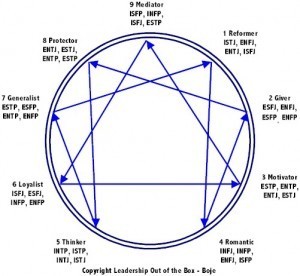Donald Miller's Blog, page 120
May 13, 2011
Are Any of us Really Independent
How many of your theological positions did you arrive at through independent observation and objective thinking?
 Not long ago, a psychology class played a trick on their professor. Every time he walked to the left side of the room, the class would tune out, look away or just look down at their notes. When he walked to the right side of the room the class would look at him, pay attention and nod their heads to affirm his ideas. By the end of the class, the professor was literally standing so far to the right of the class he was teaching from the doorway. No kidding.
Not long ago, a psychology class played a trick on their professor. Every time he walked to the left side of the room, the class would tune out, look away or just look down at their notes. When he walked to the right side of the room the class would look at him, pay attention and nod their heads to affirm his ideas. By the end of the class, the professor was literally standing so far to the right of the class he was teaching from the doorway. No kidding.
So it makes me wonder how much of the things we believe are "us" are really just a subconscious reaction to validation. Do we engage our theological positions because we've come upon them objectively, or did we find ourselves in a community that embraced those positions and rewarded us with affirmation when we came to the conclusions of the community?
I'm willing to bet the concept of Total Depravity is much more total than we understand. I bet we are so depraved that we can't even understand why we do what we do, and that much of our religious motivations are simply attempts to have a religious community validate our personalities.
What about you? Are your views about God objective? Or are they arrived at through a communal experience of affirmation and validation? And how confident are you that you are an objective person?
Are Any of us Really Independent is a post from: Donald Miller's Blog
May 12, 2011
How the Fall Makes You Feel
 I've been reading David Brooks wonderful book The Social Animal recently and found interesting parallels between his explanation of early child development and life before the fall. I wondered as he described the minds of children if Jesus invitation to come to him like Children doesn't involve some absence of self and interdependence that we only find in children.
I've been reading David Brooks wonderful book The Social Animal recently and found interesting parallels between his explanation of early child development and life before the fall. I wondered as he described the minds of children if Jesus invitation to come to him like Children doesn't involve some absence of self and interdependence that we only find in children.
Children are so in need of intimacy they feel they don't exist unless in relationship to another person. Not unlike the Trinity, they lose their identity outside of community.
Brooks quotes Colreidge's lines "Ere yet a conscious self exists, the love begins; and the first love is love of another. The Babe acknowledges a self in the Mother's form years before it can recognize a self in its own." Brooks goes on to say Coleridge described how his own child, then three years old, awoke during the night and called out to his mother. "Touch me, only touch me with your finger," the young boy pleaded. The child's mother was astonished. "Why?" she asked. "I'm not here," the boy cried. "Touch me, Mother, so I may be here."
Often when I consider the ramifications of the fall and how narrowly we define and reduce those complicated dynamics, how we reduce them to lust and greed and petty vices, I realize something much greater has happened. Essentially, we are all calling out for God to touch us that we may know we are here, and yet he waits, and we go untouched and seek out the knowing we exist in a thousand other ways.
Chesterton said sin nature is the only bit of Christian theology we can actually prove. I certainly think this longing we have for somebody to touch us, to let us know we are here, points to a few ideas:
1. That we are relational, that we have no identity outside relationships. This is why a sunset is more beautiful when it's shared.
2. That we are designed to be in relationship with each other, but that we are also to be in relationship with God. And we have a promise we will be at some point in the future.
3. That propositional theology reducing the relational dynamics of the gospel are hogwash. They are born out of a desire to control and understand rather than a desire to relate.
4. That God has all the agency with which to complete us, and we have none.
5. That our faith should not be lived or understood in independence.
Can you think of any other theological ramifications of our intensely relational design?
How the Fall Makes You Feel is a post from: Donald Miller's Blog
May 11, 2011
Do Liberal Theologians Feel More at Home With God?
 For years now I've studied the Enneagram and I've found it enlightening. The Enneagram is a personality assessment tool, but it differs from others assessments because it doesn't seek to tell who a person is, but rather, how a person hides who they are. There are nine personalities on the enneagram.
For years now I've studied the Enneagram and I've found it enlightening. The Enneagram is a personality assessment tool, but it differs from others assessments because it doesn't seek to tell who a person is, but rather, how a person hides who they are. There are nine personalities on the enneagram.
I'm in a unique position to have both theologically conservative and theologically liberal friends and I notice that some personalities lean toward conservatism and others toward liberalism. Personalities that need high levels of control tend to be conservative, and personalities seeking higher levels of understanding but less control over others tend to be liberal. Therefore, each personality is developing their theology based on the filter through which they see the world.
Conservatives are dutiful followers of God, while Liberals are affectionate followers of God. Conservatives tend to have a fists-up attitude toward the world, while liberals tend to have an arms out attitude toward the world. And what's more is that liberals tend to have a more free, exploratory relationship with God and with others. One of the things that is comforting about being around a more liberal theologian is they don't try to control you. You don't feel shame or guilt when you talk to them.
Conservatives can be comforting too in the sense they have solid, black and white definitions for any number of categories about God, and for that matter, they have categories. They are also willing to take stands. People are divided up into categories, too, usually for or against any number of theological positions.
Honestly, I find myself drawn more to a conservative theology but a liberal personality. It's sometimes torture for me to hang out with my conservative friends because they are often trying to figure out who is on their side in some kind of war. My liberal friends can be frustrating because they don't feel a sense of urgency about anything save justice issues. And of course these are grand generalizations, but they're based in what I believe to be objective observations of friends.
I've found myself wondering over the years, though, if my conservative friends and liberal friends haven't come to their conclusions by reading the Bible, but by how they were raised and the disposition they developed towards the world. If you study the enneagram at all, you'll notice many conservative leaders are Enneagram 8′s, that is they are convinced others are out to get them so they go at the world trying to kill their enemies before their enemies kill them. They trust very few people unless those people prove they are submissive, at which time they will fight and even die for their servants. In that way, they are honorable. And yet their relationships are all conditional. They feel so intensely threatened by the world they must prove themselves tough as to intimidate people away who might attack them. For this reasons, 8′s make shocking statements and speak often of how tough they are. More liberal, academic leaders might be a 5 on the enneagram so they seek security by understanding an issue as it really is, by studying it from every angle and knowing any number of positions intimately. Like Jimmy Carter, though, a 5 can have trouble landing and developing a plan of action. I was encouraged by McLaren's book A New Kind of Christianity in which he painted a very clear way of viewing the world. That said, a five will never seek to control you where an 8 will not interact with you unless they are in control. If you want a conversation, choose a 5, if you want somebody to lead you, choose an 8.
Do Liberal Theologians Feel More at Home With God? is a post from: Donald Miller's Blog
May 4, 2011
When "Doing Good" Isn't Really "Doing Good."
Chesterton said the idea of a sin nature is the only bit of Christian theology we can actually prove. And while there may be other bits of theology we can prove, I do agree the matter of sin nature is undeniable. That said, though, we commonly think of sin nature in remedial terms. Lying, stealing, cheating, these are all sins, while giving to charity or loving another person is not. But to classify sin so simply is to lessen the actual depravity we claim exists in man.
I'd take the idea a step further. I'd say total depravity fuels most of our good works, too. It's rare to find a successful church or ministry that isn't fueled by leadership that "needs" control or power or fame or even, sadly, the desire to be Godly, which can also be wrapped up in total depravity.
 The difference rests in our motives, of course. Like any addiction, self addiction is a matter of motives and manipulation. Motives can be twisted and we can easily become deceived about why we do what we do. Do we love because we love, or do we love in order to be loved? The first is pure, the second isn't any more selfless than not loving at all. When we love in order to get security, the person we are loving is just being used, and when we act righteously to gain a sense of security in our spiritual lives, our righteousness isn't truly righteous. Maybe this is why Paul talks about his righteousness being like filthy rags. It's all a con game, and the con isn't so much on others as it is on ourselves.
The difference rests in our motives, of course. Like any addiction, self addiction is a matter of motives and manipulation. Motives can be twisted and we can easily become deceived about why we do what we do. Do we love because we love, or do we love in order to be loved? The first is pure, the second isn't any more selfless than not loving at all. When we love in order to get security, the person we are loving is just being used, and when we act righteously to gain a sense of security in our spiritual lives, our righteousness isn't truly righteous. Maybe this is why Paul talks about his righteousness being like filthy rags. It's all a con game, and the con isn't so much on others as it is on ourselves.
Freedom from this isn't easy, and unfortunately like that old Chinese finger trap, the more we try, the worse the situation gets.
The Bible talks about doing good works without our right hand knowing what our left hand is doing. I take this to mean, among other things, we should do the good things we do from a sense of outward flowing love, a love that first requires an inward flowing love. We rarely think of controlling the sin or the self-deceptive motives in our lives as something we stop by ignoring, but this is precisely what I'm recommending.
When we meditate on how much God loves us instead of on how loving we are, we tend to love others selflessly out of a feeling of completion, while if we meditate on how much we love others in order to get them to love us back, we love others out of a sense of compulsion or need. The same is true for our righteousness. When we think about how good we are, we may no longer be good. Instead, we can think about how good God is, and how much we are loved by Him, and then just live in the overflow of those truths. It's tricky, but one is a prison and the other is freedom.
The good news is that our motives don't really matter in the eternal scheme of things, at least not to us personally. As people who are one with Christ, God sees in us his son, and the righteousness of his son is the reason he interacts with us. So in loving others, we can be agents of God, loving others for God, through ourselves, rather than loving others for ourselves and through ourselves. It all sounds like mind gymnastics, but it doesn't have to be that hard. The best thing I can do to love my friends is to think about and live within the truth that God loves me. This is the only way I can live and love without expecting a return on my investment. The real love will happen naturally once I understand my need is met. I don't have to think about my motives at all.
When "Doing Good" Isn't Really "Doing Good." is a post from: Donald Miller's Blog
May 3, 2011
Special Blue Like Jazz Screening at Storyline
SPECIAL ANNOUNCEMENT: Our very first public viewing of Blue Like Jazz the movie will take place at the Storyline Conference in Portland on June 6th and 7th!
When you register for Storyline, you'll not only be attending the conference, but you'll be in on the first screening of the movie! And not only this, but director Steve Taylor and Cinematographer Ben Pearson will take the stage after to take questions and film some DVD extras for the movie. Our deadline to get a watchable version of the film is set in stone, and the 500 people in the audience for Storyline will be the first to see the film. We can't wait for you to see it!
We will be screening the film in several cities, but that schedule has not been determined. We will also be holding screenings for our backers, but if you want to see the movie first, register for Storyline today! Come on out!
Here's some behind-the-scenes footage to get you excited. It's going to be incredible. We are all pretty nervous. Can't believe it's actually going to happen!
Video Update 5 – Blue Like Jazz the Movie from Blue Like Jazz The Movie on Vimeo.
Special Blue Like Jazz Screening at Storyline is a post from: Donald Miller's Blog
May 2, 2011
Storyline is Coming Up!
 We have one-hundred seats left for Storyline so if you've been daydreaming about a trip to Portland you'll want to register soon. Hundreds have just left Portland for the Q conference which was fantastic, and it got me thinking about the Storyline Conference and how only five weeks from now hundreds more will be descending on the city so we can talk together about what amazing things we can do with our lives. It's going to be a terrific time.
We have one-hundred seats left for Storyline so if you've been daydreaming about a trip to Portland you'll want to register soon. Hundreds have just left Portland for the Q conference which was fantastic, and it got me thinking about the Storyline Conference and how only five weeks from now hundreds more will be descending on the city so we can talk together about what amazing things we can do with our lives. It's going to be a terrific time.
Last year about 500 new and old friends came up for Storyline and spent two days going through five lectures, small group meetings and a robust workbook analyzing our gifts, our skills and our passions in an effort to map out how God has wired us so we can participate with God to do amazing things. If you find yourself wondering what could be next in your story, Storyline is for you. Check out the website and lets take this journey together!
To register, simply click this link, watch the video and tell your friends. Tomorrow, I will be making a special announcement about a treat that only Storyline attendees will experience. Stay tuned!
Storyline is Coming Up! is a post from: Donald Miller's Blog
April 24, 2011
Sunday Morning Music, Foster the People
Marshall Allman turned me on to this band. This song is about a school shooting, I think. Nice to cover the theme without sounding like Pearl Jam, right? Great song. Love this.
Sunday Morning Music, Foster the People is a post from: Donald Miller's Blog
April 22, 2011
A Visual Reflection for Easter
Happy Easter, everybody. My friend Jeremy Cowart is known for his photography but one of his primary passions is fine art. He's been returning to drawing and painting lately and put together this little Easter greeting and e-mailed it to his friends. I thought it was terrific. Enjoy, and have a wonderful Easter celebration.
A Portrait of Christ from Jeremy Cowart on Vimeo.
A Visual Reflection for Easter is a post from: Donald Miller's Blog
April 21, 2011
How to Tell a Better Story
If you attended The Storyline Conference last year, you'll remember Lori Ventola, our essay-contest winner who thought she'd only won a trip to Portland to attend the conference but who ended up getting a bigger surprise. Lori wrote an essay about wanting to start a tutoring program helping homeless families get their children caught up and back in school. She'd done this sort of work before, but the organization she worked with had shut down.
 We read through her essay and asked her to create a business plan, detailing all her needs to get the program started. We flew her out, and she was excited, hoping to learn something from the conference. At the end of the conference, though, we passed out her business plan to all the attendees and gave them each a white index card, asking them to write their name and phone number along with their profession and any other expertise Lori might be able to call them about to move forward. We also gave Lori a small check that allowed her to leave her job and start living a different story. And she's done very well. In under a year working in Denver, she's partnering with friends in Los Angeles to create a program through The Dream Center. No kidding, she's already creating franchises.
We read through her essay and asked her to create a business plan, detailing all her needs to get the program started. We flew her out, and she was excited, hoping to learn something from the conference. At the end of the conference, though, we passed out her business plan to all the attendees and gave them each a white index card, asking them to write their name and phone number along with their profession and any other expertise Lori might be able to call them about to move forward. We also gave Lori a small check that allowed her to leave her job and start living a different story. And she's done very well. In under a year working in Denver, she's partnering with friends in Los Angeles to create a program through The Dream Center. No kidding, she's already creating franchises.
Lori says those index cards helped a lot more than the money, which just goes to show you what a community of people with various talents and skills can do when they combine resources.
So I'm wondering what kind of story you are wanting to live? Are you ready to take the leap? Do you need some help? While I can't pass out index cards for you, you could probably duplicate a little Storyline magic right there amongst your friends. Here are some tips for getting started telling a better story:
1. Have a clear vision of what you want to do. For Lori, it was simple, she wanted to tutor kids who were falling through the cracks, kids the system was leaving behind. She wanted to get them caught up. With the help of lawyers, educators, designers, organizational professionals and more, she is on her way.
2. Make sure that vision is really coming from your passions. Don't pursue something because it's the right thing to do, otherwise you will fail. Pursue your vision because it's you and it lights you up. Sometimes it's hard to tell the difference. Last year I was approached with an awesome opportunity that fit right in with the books I've written, I found myself less than excited. On paper, everything was perfect. And I'd have made a lot of money doing the work. But the more I thought about it, the more I knew it would fail. My heart wasn't in it. My mind was asking other questions and I wanted to pursue other opportunities. So sit with your vision for a while and ask yourself if you could live with whatever you create for a few years and if you'd truly be happy if it came about.
3. Take huge risks. Lori quit her job. No kidding. We didn't even give her that much money, but it was enough for her to commit full time to the work and raise the rest as she went along. It's been scary for sure. Great stories are often frightening. But she took the leap and she's changing people's lives.
4. Pass out index cards to everybody you know. I don't mean literally (although that's not a bad idea) but I do mean everybody. Include everybody in your plan and ask them to help you out. Amongst your friends, you are only a few relationships removed from real estate agents, lawyers, accountants, doctors and so on and so on. Put together your team, show them your plan, and ask people for help.
Lori is taking Plumfield Learning Systems to Los Angeles, and is looking for some more help. I'm going to ask for some help for her, because she's my friend. What she needs is some dough to cover expenses for the trip out, about $5k. You can donate at Plumfield's site through her ChipIn campaign. She also needs as many airline tickets as she can get from Denver to LA and back. She'll likely be visiting the program as often as she can.
Visit Lori today and help her along in the amazing story she's telling the world. And while your at it, feel free to tell a great story yourself! Can't wait to hear about it!
How to Tell a Better Story is a post from: Donald Miller's Blog
April 20, 2011
STOP BEING MOTIVATED BY GUILT
Yesterday I blogged about a doctor who does amazing work around the world, work many would call a sacrifice, yet he referred to the work as "fun." I also mentioned that because he did this work for fun and not out of guilt, he called himself the "opposite of an evangelical." I think he was on to something, though. I think he looked at evangelicals and realized they weren't joyful people, they were people motivated by shame and guilt. It's a generalization, for sure, but it's a generalization based on some accurate perceptions. I recommend making some changes, then.

What I'm getting at is a shift that could add a lot of joy to your life. What I am about to say is going to sound arrogant and lacking in heart. But I'd love for you to consider a few ideas:
I did an interview today and was asked about how I make decisions regarding helping others. I told the interviewer if I encounter somebody in need but don't feel like helping them, I usually don't. It sounds terrible, doesn't it? But I explained the reason I don't is because there are plenty of people I actually do feel like helping. And each of us only has so much time and so many resources, so I can't choose both.
If I help the people I want to help, I'll actually follow through, they will sense my sincerity, and the whole experience will be more enjoyable for both of us.
Not only this, but if I help the other person out of a sense of duty, I'm not so much helping them as I'm trying to get rid of my negative feelings of guilt or responsibility. My reasons are marginally selfish: I WANT TO STOP FEELING GUILTY.
Are there times when we should do something because we feel guilty? Sure. But I don't think there are as many as we think. I don't want to be driven by guilt, I want to be driven by love.
In the work I do, I'm constantly asking people for help. All kinds of help. But my friends help me, I hope, because they like me, because we are friends, and because they believe in the projects I'm working on, not because they feel guilty. I don't want anybody to help me because they feel guilty.
So, here's how I choose where to serve, based on trying to serve for the fun of it and the love of it rather than the "ought to" of it.
1. I try to contribute by offering the kind of help that fits my skill sets, talent and passion. For me, this means either writing advice, blogging advice, marketing help and so on and so on. I could easily go volunteer at my local homeless shelter, but honestly, I'd be much better helping somebody who actually needs my skill and experience and I'd make a much bigger difference in their life. Why wouldn't I choose to help where I could be the most help?
2. I normally try to serve people I like and respect. This makes serving easy because you just get to hang out and partner with good people. Helping people you like and respect makes helping fun.
3. I try to contribute to projects I believe in and want to see succeed. This doesn't just mean the other projects aren't good for the world, it just means they don't light me up. I'm not excited about all sorts of amazing things. I'm excited for the people who are excited about them, but for whatever reason, I'm just not feeling it with them. Why? Because we are all different, and different things light us up. If I'm going to contribute several hours a week to something, I want it to be toward something I can get behind, daydream about, and help into existence. I don't want it to feel like work, I want it to feel like fun.
So, an obvious question you might have is: Where's the sacrifice?
I'll answer that question in the form of a question: Why do we assume a sacrifice has to feel negative?
Yesterday I had a lot of people comment about this point by saying Jesus made sacrifices in the garden. Specifically, some peoplesaid Jesus didn't want to die on the cross but he did so out of obligation or duty. I disagree with this idea, at least in part. Let me explain.
I believe the reason Jesus didn't want to be crucified is because HE WAS SANE! Nobody in their right mind would want to be crucified. In fact, he asked his Father if he could somehow get out of it. Who could blame him? But to say he was crucified even though he didn't want to be crucified is to take the idea too far. He wanted to sacrifice on our behalf, he just didn't want to feel the torture and the pain. A mother wants to give birth, but she doesn't want to feel pain either. Still, if you tell her it's going to hurt terribly, she's not going to back out of it, she wants to have the baby. A Dad wakes up and takes care of his crying child, even though he doesn't want to get out of bed. Are they doing these things out of a sense of duty or obligation? Hopefully not. Hopefully they are making sacrifices BECAUSE THEY WANT TO.
 God does the loving thing all the time, even when the loving thing will bring him pain, pain he'd rather avoid. And he does the loving thing because he wants to, because he loves his creation, and because he is love. God is not motivated by guilt, shame or even a sense of duty. He is only motivated by love.
God does the loving thing all the time, even when the loving thing will bring him pain, pain he'd rather avoid. And he does the loving thing because he wants to, because he loves his creation, and because he is love. God is not motivated by guilt, shame or even a sense of duty. He is only motivated by love.
Jesus isn't in an army, he's in a family. He's in a trinitarian relationship in which each member loves the other. They're not raising the trinitarian flag every morning and saying a pledge, they just LOVE each other. Love is the only motivation God has for anything he does, including acts of justice.
So what does this have to do with you? A lot. I think doing things because we want to, out of a loving motivation, is better than doing things out of a sense of duty. In fact, I think dutiful motivations are closely akin to pride, while loving motivations are not.
I know I've just lost half of you. But stick with me and think about these ideas. Answer a few questions for me in your mind:
Do you do acts of kindness out of a sense of duty, or out of a sense of enjoyment and love? Do you do acts of kindness to be right, or because you enjoy doing them and are motivated by love? And here's an even tougher question: Do you enjoy the sacrifices you make for others? And would it be harder to call those sacrifices sacrifices if you genuinely enjoyed the work? Are you getting some kind of martyr complex by doing stuff you don't want to do? Does it make you proud that you made such a sacrifice? And if you are getting a sense of pride for your sacrifice, is it really a sacrifice by your definition, after all, you're kind of getting paid for it…
If you asked your dad why he sacrifices so much for you, which answer would be more affirming, an answer in which he stated it was his duty as a father, or an answer in which he just said "because I love you." Which answer seems more selfless?
And let me ask you a final question. Think about it for a while, maybe for a few days. Can you imagine a life in which you were no longer motivated by guilt, shame or a sense of duty? Can you imagine a life in which you served God out of love and enjoyment and even fun? Would you feel okay with God if you were actually happy? If not, I want to suggest you've fallen into a religious kind of trap that may be far removed from the joy of loving and knowing and serving God.
If you'd like a more joyful life, start serving in the ways God has gifted you to serve, and cut out all the duty and obligation and pride crap. No kidding. If you are teaching Sunday School out of a sense of obligation, stop. Literally stop as soon as you can. Instead, find something that gets you fired up. Who knows what that something is… Maybe it's plumbing or carpentry work, maybe it's counseling executives, maybe it's walking people's dogs or planting a community garden. Who knows, but serve in a way God has wired you to serve. He actually wants you to enjoy it, not offer it to him as some sort of sad sacrifice. Can you imagine your earthly father wanting you to be miserable all the time? Why do we imagine God would be so dysfunctional and, well, mean?
Make the kinds of sacrifices that you LOVE to make. In other words, be like God.
STOP BEING MOTIVATED BY GUILT is a post from: Donald Miller's Blog
Donald Miller's Blog
- Donald Miller's profile
- 2745 followers



